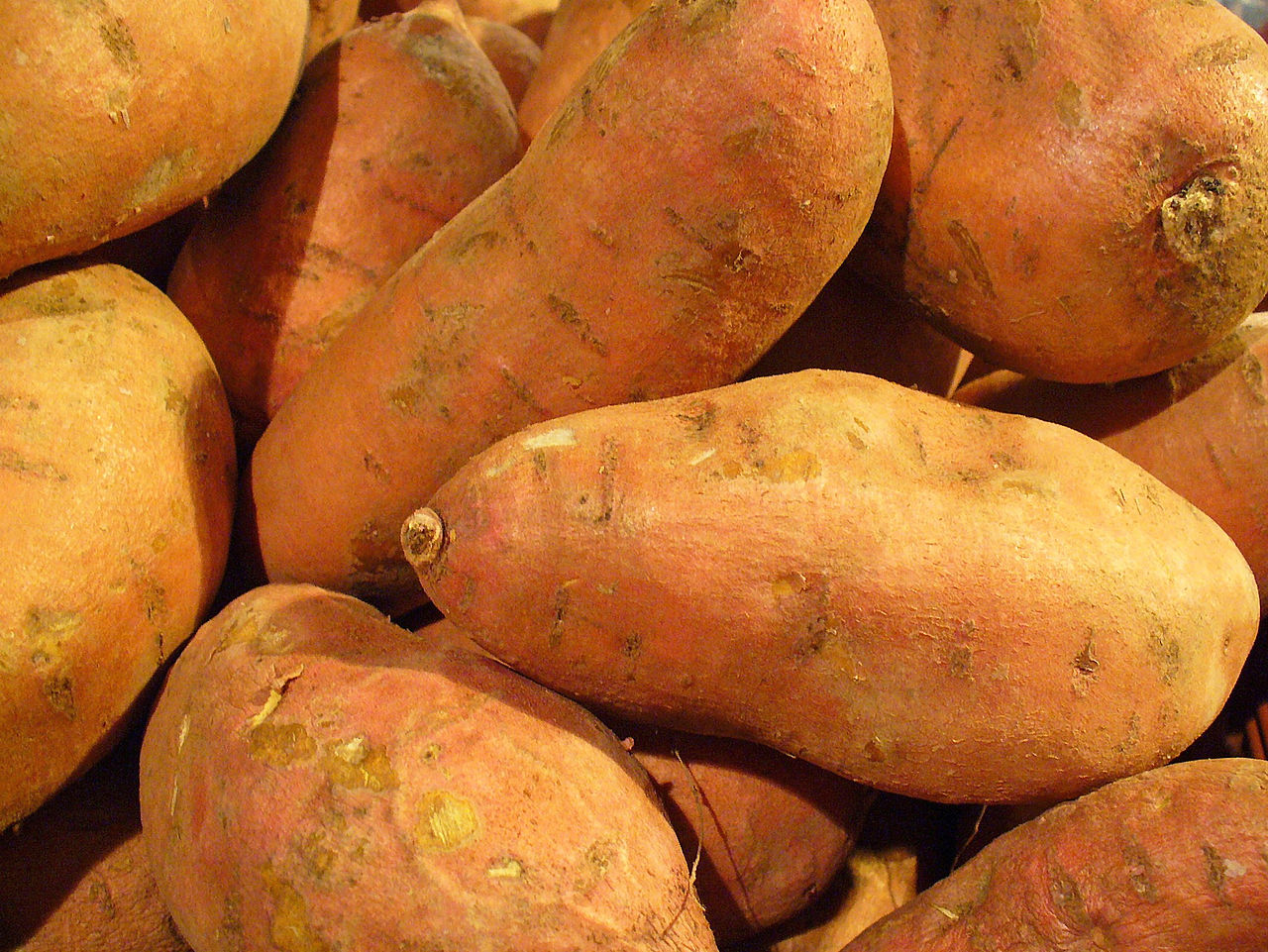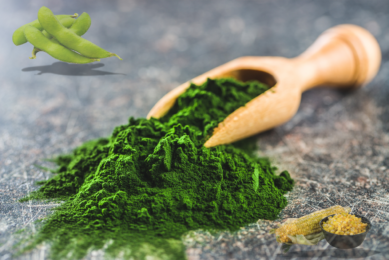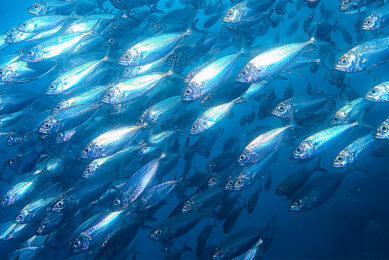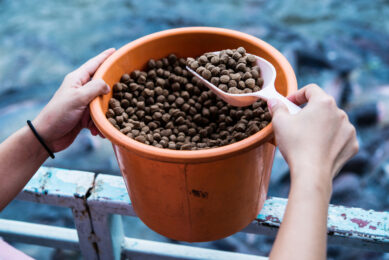Sweet potato the new aquafeed

Sweet potato (Ipomoea batatas), locally known askamote, is an important food crop in the Philippines; in some areas it is a staple particularly among marginalised families in the provinces, as they are easy to cultivate and cheaper than rice. The health properties of this rootcrop are proven to be beneficial to humans and now it is also being considered an important ingredient in aquafeeds.
To assess the potential of the crop, the Tarlac College of Agriculture (TCA) conducted a project entitled “Technology Commercialization of Protein-Enriched Sweet potato as Feed for Aquaculture.” Funded under the National Technology Commercialization Program (NTCP) of the Bureau of Agricultural Research (BAR), the project aimed to commercialise and provide fishpond operators/ owners with affordable and high quality feed formulation for aquaculture specifically in bangus, crabs and shrimp. The programme leader, Dr. Rodolfo Domo-os, Dr Ma. Teresa S.J. Valdez and Dr Manuelo Agsaoay are working with fishpond operators in Central Luzon and neighbouring provinces as collaborators.
Based on studies conducted by TCA, sweet potato was fermented to enhance the protein for high valued aquafeeds. The use of microbial fermentation to produce high protein feed is becoming increasingly important as a means of backstopping the high cost and seasonal availability of conventional feed ingredients. The TCA researchers reported as much as 17-fold increase in the protein content of sweet potato pulp after enrichment by fermentation.
Sweet potato chips were ground and fermented following the procedures employed in protein enrichment pulp. A standard nutrient solution with some modifications was prepared.
The protein-rich feed was harvested after two weeks of fermentation afterwhich it was sun-dried to remove the odorous metabolites. After drying, the fermented protein-enriched sweet potato (PESP) can remain fresh up to two years without adding anti-oxidants. The project has produced approximately 16.8 tons of the PESP to supply the requirements of the technology showcase for bangus, tilapia, crabs and shrimp.
The trial was conducted with pure feeding of PESP to bangus, tilapia, crabs and shrimp. It was compared with the fishpond operators’ practices. All feeding trials in commercial ponds were done for the entire grow-out period until the animals were ready for harvest.
The project was carried out in cooperation with fishpond operators in Malolos, Bulacan; Balanga, Bataan; Dagupan, Pangasinan; and Iba, Zambales, through participatory feeding trials.
The PESP is considered as a breakthrough in aquafeedand and the technology protected by trademark for a period of 50 years. TCA will establish a feedmill and mass produce and market the product to fishpond operators in Pangasinan, Bataan, Zambales, and Bulacan. The project also hopes to commercialise its operation with private investors.
According to Dr Agsaoay, the cost of production is reasonable and can be mass produced at village level through a technology transfer agreement. The cost to produce a kilo of PESP is P12.25 or P612.50 for every 50-kilo bag.
The government said that with this technology, fisherfolk can now realise higher profitability compared with commercial feed utilization. The cost and return analysis comparing PESP from that of commercial feed is comparable. Sustainability in the distribution of the product and sale of the product can be sustained; hence the product is readily available at Tarlac, sweet potato being its flagship crop. Agsaoay assured there would be no competition between aquaculture and human consumption.
Feedback from fishpond operators and the fishing communities showed positive response. Large-scale fishpond owners are positive about the effects and potential of the feeds as a viable substitute to commercial feeds.
At present, a team is in the process of disseminating the studies and technology to neighboring fishpond owners and other stakeholders in the region.
Source: Aquafeed











